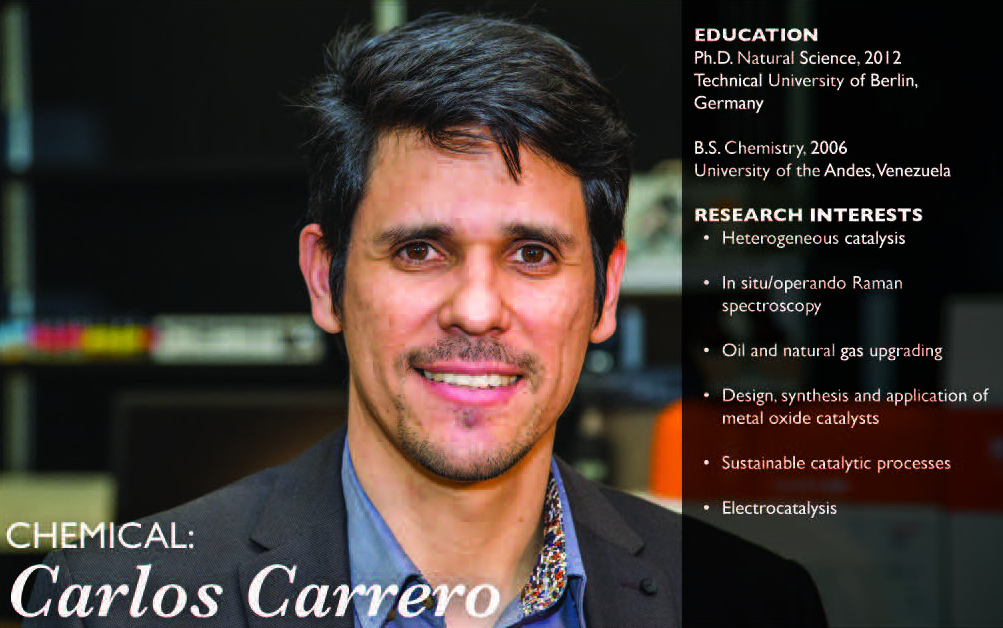Carlos Carrero, assistant professor in chemical engineering, has been around the world and back again.
He graduated with his bachelor’s degree in chemistry from the University of the Andes in Venezuela and earned his doctoral degree in natural science from the Technical University of Berlin in Germany. Following completion of his doctorate, Carrero moved to the Max Planck Institute to study chemical energy conversion in Muelheim, Germany.
He then moved to the University of Wisconsin-Madison to continue his postdoctoral research, and finally landed at Auburn to join the chemical engineering staff.
Carrero’s work concentrates on heterogeneous catalysis or the increase in the rate of a chemical reaction due to the participation of an additional substance, a catalyst. Carrero applies his catalysis work to the upgrading of natural gas, crude oil and biomass.
Carrero’s research explores how chemicals can be produced from these natural resources, which could grow the global economy significantly as researchers find more active and selective catalysts to apply toward producing highly demanded chemicals, according to Carrero. His ultimate goal is to gain new fundamental insights into how heterogeneous catalysts could positively affect natural resource markets that are increasingly using natural gas.
As a professor, Carrero wants to pass along his knowledge and experience so future engineers will better utilize the nation’s natural resources.
“I want to do my best to mentor my students to gain knowledge in such an important area of catalysis, Carrero said. “Natural gas is offering a lot of new job opportunities in the United States because it’s increasingly becoming the main source of energy we have.”
